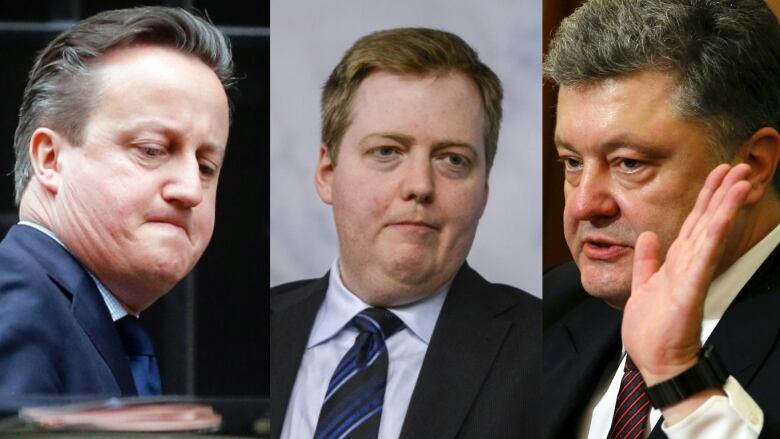Global powers should act to shut down offshore tax havens, economist Joseph Stiglitz says
'Treat secrecy havens like the carriers of a dangerous disease,' Nobel winner writes

Offshore havens are "co-conspirators" in crimes like tax evasion, corruption and even child pornography, and should have a firewall built around them by the biggest global economies in an effort to choke them out, a famouseconomistsays in a report published today that was prompted by the Panama Papers.
Recommending "severe" penalties for violations, former World Bank chief economist Joseph Stiglitz says it should be illegal to open a bank account in a secretive tax haven, to set up an offshore corporation in one, or for banks to send or receive money there.
"Regulators should treat secrecy havens like the carriers of a dangerous disease.They should be cut off from the global financial and economic system," Stiglitz writes with co-author Mark Pieth, a professor of criminal law at the University of Basel in Switzerland and an expert on global money laundering and financial crime.
The goal should be to force reforms in, or at least seal off, any countries or jurisdictions that refuse to open up their financial systems and provide a basic level of transparency about corporations, accounts, money movements and tax treatment, the authors say.
"It's a good idea," said Vancouver-based financial crime expert Kim Marsh, a former RCMP fraud investigator who is now president of IPSA International, a global firm that does corporate investigations and due diligence.
"It would be difficult to compel people to comply on, but there would be ways of enforcing it if the World Bank and IMF and others got behind it, and they would have to be aggressive."
Authors quit Panama committee
Stiglitz shared the 2001 Bank of Sweden Prize in Economic Sciences, known as the economics Nobel, and was the chief economist at the World Bank from 1997 to 2000. In the wake of the Panama Papers which spotlighted how Panama's banking and legal systems have been exploited for money laundering, sanctions evasion and global fraud he and Pieth were appointed to a committee by the Central American country's president to suggest ways to be more transparent.

They both quit, though, saying the expert panel itself lacked transparency and the government refused to promise to make their recommendationspublic.
Instead, they set out their thoughts in their report, published by a German political foundation.
The report doesn't single out any jurisdictions in particular, but does name places like the Cayman Islands, British Virgin Islands and Luxembourg in passing.
These secrecy havens and others, "like the movement of terrorists across borders, are among the darker sides of globalization," Stiglitz and Pieth write.
"Most socially destructive activities occur behind the cloak of secrecy."
Solutions they recommend include:
- Each country should set up a public, searchable registry with the names of the directors and beneficial owners of companies incorporated under its jurisdiction. The United Kingdom has already committed to this, but most jurisdictions including Canada and most of its provinces do not currently publish shareholder information.
- Countries should publish information on the beneficiaries, creators and administrators of any trusts within their borders.
- Companies everywhere should be required to pay an annual fee and file a yearly status reportto try to deal with the problem of the tens of thousands of dormant "zombie" corporations that are on the books around the world.
- All countries should automatically share information on the financial dealings of each other's citizens within their own borders, so that the Canada Revenue Agency, for example, would automatically find out if a Canadian resident was earning income in a bank account set up in Bermuda. About half the world's countries have committed to this already.
Penalties for carrying on business incountries that don't meet these standards should include banks losing their operating licence, lawyers getting disbarred and public companies being delisted from stock exchanges, the report says.
The authors go so far as to warn that secrecy havens can lead to societal breakdown by allowing people in developed and developing countries to get a free ride frompublic education, health careand infrastructure without paying their fair share.
Fallout from leak
The Panama Papers leak, which became public in April, included 11.5 million confidential documents shedding light on the offshore assets and murky fiscal dealings of 12 current and former world leaders, soccer playerLeo Messi, movie starJackie Chan, associates of Russian President Vladimir Putin and many more.
The ensuing fallout led to the resignations of Iceland'sPrime Minister Sigmundur David Gunnlaugsson, a Spanish cabinet minister and a member of FIFA, world soccer's governing body, among others.
It is not illegal for Canadians to have an offshore account, but any income must be reported for tax purposes, as well as any offshore assets totalling more than $100,000. Offshore jurisdictions usually have strict confidentiality rules for bank accounts and shell companies that make it easier to hide assets from tax authorities, though the world's biggest economies have been taking steps to combat that for a number of years.












_(720p).jpg)


 OFFICIAL HD MUSIC VIDEO.jpg)
.jpg)



























































































